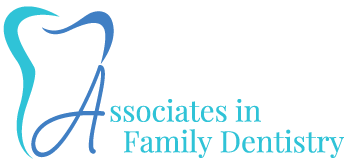Pacifiers & Thumb Sucking
The Effects of Pacifiers & Thumb Sucking on Your Child’s Teeth
For most infants, the sucking of thumbs and pacifiers is a happy, everyday part of life. Since sucking is a natural, instinctual baby habit, infants derive a sense of comfort, relaxation, and security from using a thumb or pacifier as a sucking aid.
According to research from the American Academy of Pediatric Dentistry (AAPD), the vast majority of children will cease using a pacifier before the age of four years old. Thumb sucking can be a harder habit to break and tends to persist for longer without intervention. Children who continue to suck thumbs or pacifiers after the age of five (and particularly those who continue after permanent teeth begin to emerge) are at high-risk for developing dental complications.
If You Do Intend to Purchase a Pacifier
- Buy a one-piece pacifier to reduce the risk of choking.
- Buy an “orthodontically correct” model.
- Do not dip it in honey or any other sugary liquid.
- Rinse with water (as opposed to cleansing with your mouth) to prevent bacterial transmissions.

How Can I Encourage My Child to Stop Thumb or Pacifier Sucking?
In most cases, children naturally relinquish the pacifier or thumb over time. As children grow, they develop new ways to self-soothe, relax, and entertain themselves. When thumb sucking or pacifier use persists past the age of five, a gentle intervention may be required.
Here are some helpful suggestions to help encourage the child to cease thumb sucking or pacifier use:
- Ask the pediatric dentist to speak with the child about stopping. Often, the message is heard more clearly when delivered by a health professional.
- Buy an ADA recommended specialized dental appliance to make it difficult for the child to engage in sucking behaviors.
- Implement a reward system (not a punishment), whereby the child can earn tokens or points towards a desirable reward for not thumb sucking or using a pacifier.
- Wrap thumbs in soft cloths or mittens at nighttime.

How Can Thumb Sucking and Pacifier Use Damage Children’s Teeth?
Pacifier and thumb sucking damage can be quite insidious. Both can be difficult to assess with the naked eye, and both tend to occur over a prolonged period of time. Below is an overview of some of the risks associated with prolonged thumb sucking and pacifier use:
Pacifiers come in a wide range of shapes and sizes, most of which are completely unnatural for the mouth to hold. Over time, pacifiers and thumbs can guide the developing jaws out of correct alignment.
Many parents attempt to soothe infants by dipping pacifiers in honey, or some other sugary substance. Oral bacteria feed on sugar and emit harmful acids. The acids attack tooth enamel and can lead to pediatric tooth decay and childhood caries.
The structures in the mouth are extremely pliable during childhood. Prolonged, repeated exposure to thumb and pacifier sucking actually cause the roof of the mouth to narrow (as if molding around the sucking device). This can cause later problems with developing teeth.
Growing teeth can be caused to slant or protrude by thumb and pacifier sucking, leading to poor esthetic results. In addition, thumb sucking and pacifier use in later childhood increases the need for extensive orthodontic treatments.
Passive sucking is much less harmful than aggressive sucking. Aggressive sucking (popping sounds when the child sucks) may cause sores or ulcers to develop.
Let Us Help Break the Habit
If the above suggestions do not seem to be working, your pediatric dentist can provide more guidance. Remember: the breaking of a habit takes time, patience, and plenty of encouragement! Contact us for more info at 303-848-3439.
